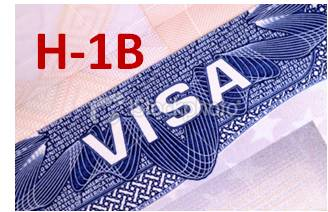WHAT OTHER VISA OPTIONS ARE AVAILABLE?
The L-1 Intracompany Transferee Visa
 The L-1 or intra-company transfer visa facilitates the transfer of key employees from a foreign corporation to a U.S. branch, parent, subsidiary, or affiliated entity. This visa allows a U.S. company to bring in top-level managerial, executive, or specialized knowledge employees for a temporary period. The employee must have worked for the foreign company for at least one of the past three years or six months for blanket L scenario and must work for the U.S. company in a similar position. It need not be the same status as overseas (ex: specialized knowledge overseas could be a manager in the United States. Only needs to be in one of the three classes: manager, executive, or specialized knowledge). The foreign entity may pay the employee his or her salary but the U.S. company must control the employee’s performance of his or her work. Authority to engage and terminate the employee is strong evidence of control. There are no numerical limits on the L visa and the spouse of an L visa holder may apply for work authorization. The L visa is initially valid for up to three years in the case of an existing business and up to one year where a new business is established in the United States. There is a five-year limit on L-1B employees with specialized knowledge staying in the United States and a seven-year limit for L-1A managers and executives.
The L-1 or intra-company transfer visa facilitates the transfer of key employees from a foreign corporation to a U.S. branch, parent, subsidiary, or affiliated entity. This visa allows a U.S. company to bring in top-level managerial, executive, or specialized knowledge employees for a temporary period. The employee must have worked for the foreign company for at least one of the past three years or six months for blanket L scenario and must work for the U.S. company in a similar position. It need not be the same status as overseas (ex: specialized knowledge overseas could be a manager in the United States. Only needs to be in one of the three classes: manager, executive, or specialized knowledge). The foreign entity may pay the employee his or her salary but the U.S. company must control the employee’s performance of his or her work. Authority to engage and terminate the employee is strong evidence of control. There are no numerical limits on the L visa and the spouse of an L visa holder may apply for work authorization. The L visa is initially valid for up to three years in the case of an existing business and up to one year where a new business is established in the United States. There is a five-year limit on L-1B employees with specialized knowledge staying in the United States and a seven-year limit for L-1A managers and executives.
Consular posts generally see an increase in L-1 applications after the H-1B cap is reached. However, there is no legal reason why aliens eligible for H-1B status cannot legitimately seek out other type of visas, including L visas.
The Treaty-Trader/Treaty -Investor Visa (E-1/E-2)
E or treaty visas are available to persons or entities engaging in trade between the United States and their home country or persons and entities coming to the United States to develop and direct enterprises in the United States in which they are investing substantial amounts of capital. The E-2 category includes individual investors and managers, executives, and essential skills employees of business entities that do the investment. As a threshold issue, in order for a foreign national to qualify for this visa there must be a trader or investor treaty between the U.S. and the applicant’s home country. For treaty traders, the company set up in the United States must be at least 50% owned by a treaty country national but the applicant does not have to be an owner of the business. There must be a “substantial” flow of trade (either goods or services) between the U.S. business and the treaty national’s home country. The USCIS determines whether the trade is substantial on a case-by-case basis. Factors that may be considered include the nature of the business, the number of transactions, amount of trade and capital outlay.
With respect to an investment visa, again the business must be at least 50% owned by treaty nationals and there must be a substantial investment, which like the treaty-trader visa is determined on a case-by-case basis. The investor must have experience in the business and must be actively involved. The investor cannot simply invest in a company run by someone else. An E visa holder is normally admitted to the U.S. for a two-year period with unlimited two-year renewals. Spouses of E visa holders may apply for work authorization.
TN Status
Employers may continue to sponsor Canadian and Mexican nationals in TN status under the North American Free Trade Agreement (NAFTA). This visa is available to Mexican and Canadian nationals who have been offered a temporary position in one of the professions described in schedule 2 of NAFTA. The applicant must have the degree or credentials required for that profession. The TN visa is valid for three years and may be renewed indefinitely. A spouse of an employee in TN status is not eligible for work authorization.
The O Visa
Foreign nationals with extraordinary ability in the arts, sciences, athletics, education or business, may apply for an O visa. Beneficiaries in the sciences, athletics, education or business field must show that they have risen to the top of their field evidenced by national or international recognition. Beneficiaries in the arts must show prominence and a record of extraordinary achievement. Beneficiaries in the motion picture or television industry need to show a high-level of accomplishment, above that ordinarily encountered in the field. The O visa is usually granted for three years and is renewed in one-year increments. The O visa may be renewed indefinitely. A spouse of an O visa holder cannot apply for work authorization.
The J-1 Exchange Visitor Visa
This visa is available to foreign nationals to enter the United States as exchange visitors to participate in government approved exchange programs. First, the prospective employer must establish an approved exchange program. Such program may be sponsored by government agencies, private businesses or educational agencies. The foreign national may then enter the United States for the purpose of doing research, gaining training or studying. Depending on the foreign national’s qualifications and the type of exchange program, the J-1 visa is available anywhere from eighteen months for most trainees to forty two months for professors and research scholars. Certain foreign nationals may be subject to a two-year home residency requirement at the end of their stay.
MAKING THE H1-B CUT-OFF FOR FY 2012
The prudent employer will be well-served in starting to consider their employment needs for the upcoming fiscal year. Because the USCIS generally works on petitions in the order they were received, it may be worthwhile to pay the extra $1,225.00 premium processing fee to have your H-1B visa applications adjudicated in fifteen days.
Unless Congress raises the annual H-1B visa cap, employers will have to file their H-1B petitions as early as possible and make use of other visas available to bring temporary workers to the United States for FY 2012. Readers are encouraged to contact their senators and representatives to push for an increase in the H-1B cap.




